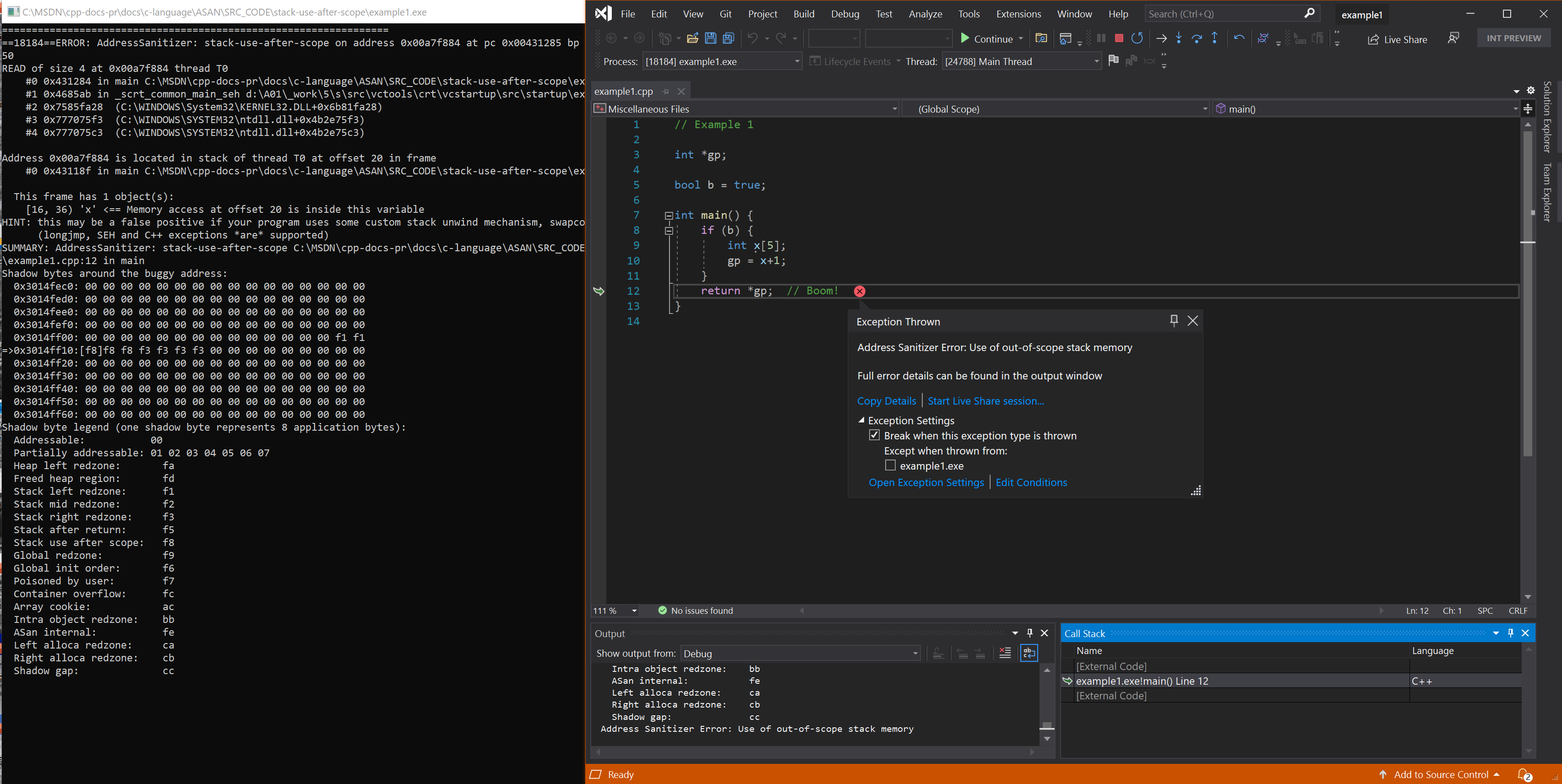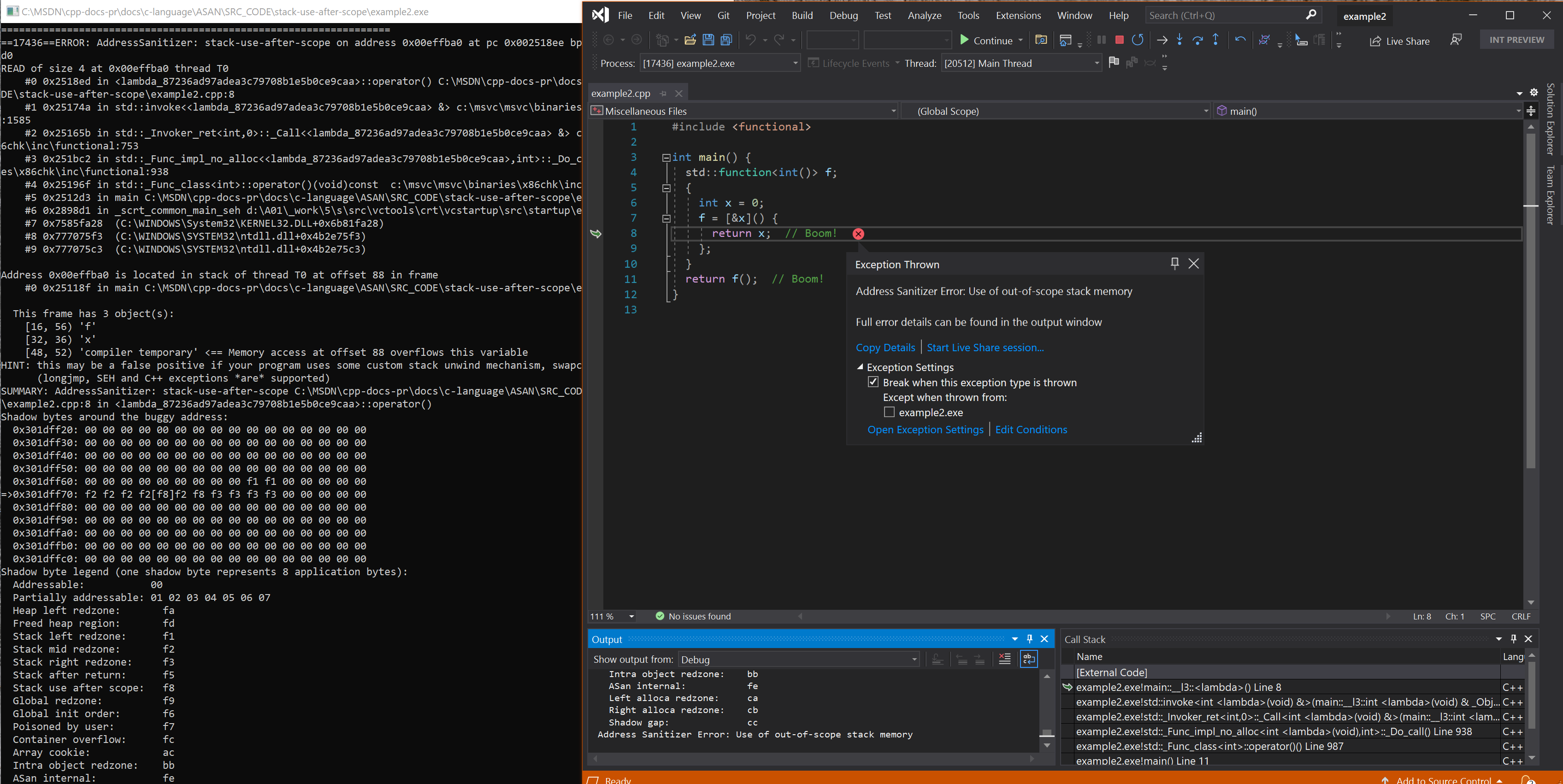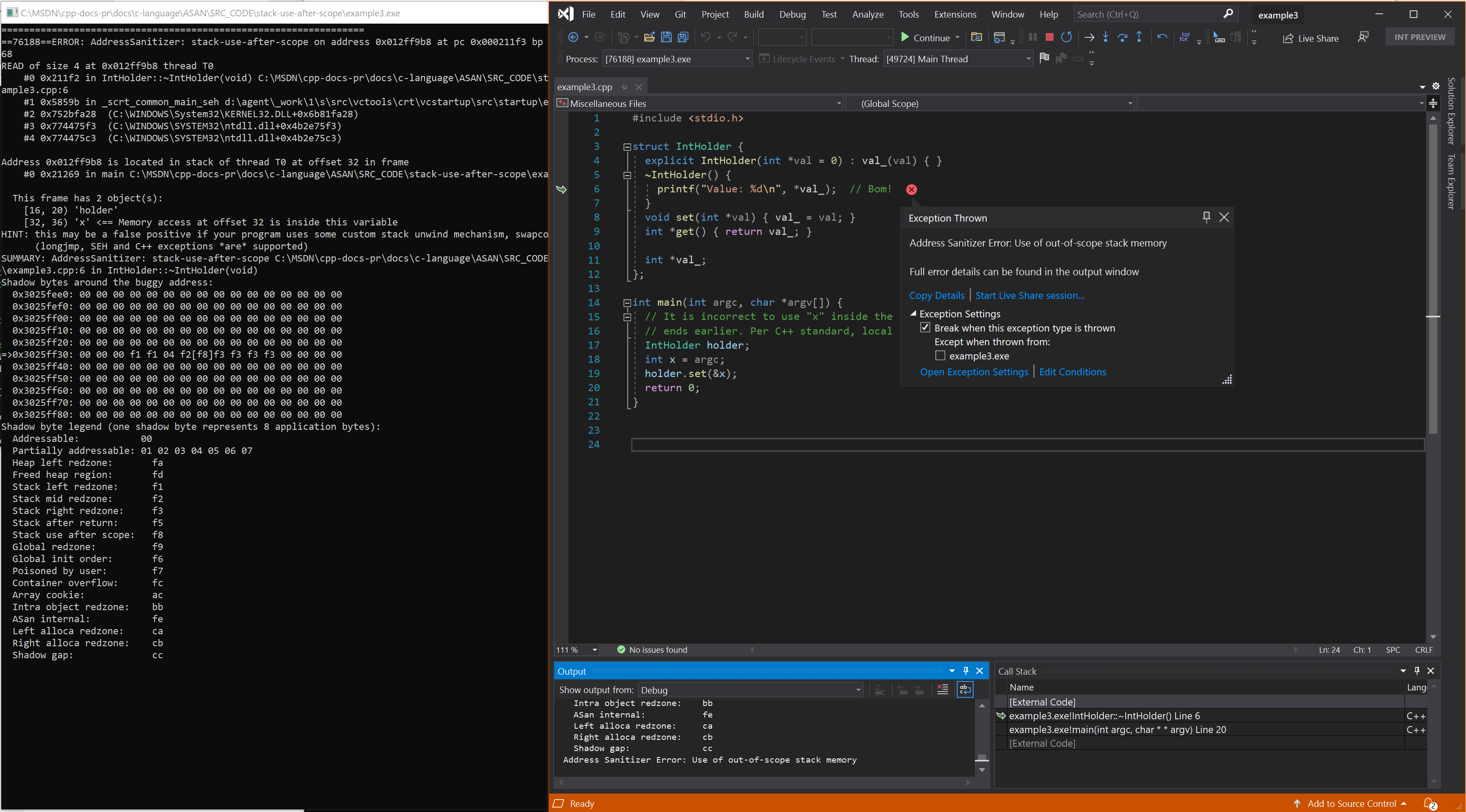Error: stack-use-after-scope
Address Sanitizer Error: Use of out-of-scope stack memory
The use of a stack address outside the lexical scope of a variable's lifetime can happen many ways in C or C++.
Example 1 - simple nested local
// example1.cpp
// stack-use-after-scope error
int *gp;
bool b = true;
int main() {
if (b) {
int x[5];
gp = x+1;
}
return *gp; // Boom!
}
To build and test this example, run these commands in a Visual Studio 2019 version 16.9 or later developer command prompt:
cl example1.cpp /fsanitize=address /Zi
devenv /debugexe example1.exe
Resulting error - simple nested local

Example 2 - lambda capture
// example2.cpp
// stack-use-after-scope error
#include <functional>
int main() {
std::function<int()> f;
{
int x = 0;
f = [&x]() {
return x; // Boom!
};
}
return f(); // Boom!
}
To build and test this example, run these commands in a Visual Studio 2019 version 16.9 or later developer command prompt:
cl example2.cpp /fsanitize=address /Zi
devenv /debugexe example2.exe
Resulting error - lambda capture

Example 3 - destructor ordering with locals
// example3.cpp
// stack-use-after-scope error
#include <stdio.h>
struct IntHolder {
explicit IntHolder(int* val = 0) : val_(val) { }
~IntHolder() {
printf("Value: %d\n", *val_); // Bom!
}
void set(int* val) { val_ = val; }
int* get() { return val_; }
int* val_;
};
int main(int argc, char* argv[]) {
// It's incorrect to use "x" inside the IntHolder destructor,
// because the lifetime of "x" ends earlier. Per the C++ standard,
// local lifetimes end in reverse order of declaration.
IntHolder holder;
int x = argc;
holder.set(&x);
return 0;
}
To build and test this example, run these commands in a Visual Studio 2019 version 16.9 or later developer command prompt:
cl example3.cpp /fsanitize=address /Zi /O1
devenv /debugexe example3.exe
Resulting error - destructor ordering

Example 4 - temporaries
// example4.cpp
// stack-use-after-scope error
#include <iostream>
struct A {
A(const int& v) {
p = &v;
}
void print() {
std::cout << *p;
}
const int* p;
};
void explicit_temp() {
A a(5); // the temp for 5 is no longer live;
a.print();
}
void temp_from_conversion() {
double v = 5;
A a(v); // local v is no longer live.
a.print();
}
void main() {
explicit_temp();
temp_from_conversion();
}
To build and test this example, run these commands in a Visual Studio 2019 version 16.9 or later developer command prompt:
cl example4.cpp /EHsc /fsanitize=address /Zi /Od
devenv /debugexe example4.exe
ASAN is a form of dynamic analysis, which means it can only detect bad code that is actually executed. An optimizer may propagate the value of v in these cases instead of reading from the address stored in p. As a result, this example requires the /Od flag.
Resulting error - temporaries

See also
AddressSanitizer overview
AddressSanitizer known issues
AddressSanitizer build and language reference
AddressSanitizer runtime reference
AddressSanitizer shadow bytes
AddressSanitizer cloud or distributed testing
AddressSanitizer debugger integration
AddressSanitizer error examples